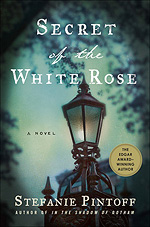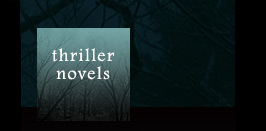
Secret of the White Rose
Reader's Guide by Stefanie PintoffAbout this guide
My goal in preparing this reader's guide is to offer some thought-provoking questions that may enhance the reader's enjoyment of my novel, Secret of the White Rose—especially in a book club setting.
Enjoy!
Discussion Questions
- In Secret of the White Rose, how is the anarchist movement depicted in both positive and negative viewpoints? The portrayal of the anarchists is necessarily limited by the first-person POV of Detective Ziele, himself a policeman. Is he fairminded? Or does he reflect the prejudices one might expect from a person of his class and profession? (From the Haymarket Riots in Chicago in 1886 to the Union Square bombing in New York City in 1908, policemen were frequent targets of anarchist violence).
- This novel depicts a New York that is in the midst of social upheaval. Discuss the role of class in the novel, particularly Simon Ziele's feelings returning to his old neighborhood and reuniting with the Strupp family. How do his own ambitions, not to mention his attraction to the world Alistair and Isabella inhabit play into it?
- The story takes place during a time of rapid technological change and progress. What are some of the innovations represented? Is their impact good or bad?
- How does the relationship between Simon and Isabella change in this novel? In spite of the class differences—which are a major obstacle in 1906—do you believe there's any possibility for a real relationship between them? Likewise, the relationship between Detective Ziele and Alistair Sinclair evolves significantly in this novel. Does it ever approach an equal partnership?
- "Duty" is a theme that plays out in the book through many different characters, from Judge Jackson in the beginning, to Ziele, to Alistair and others. How does each characters' conception of duty shape their actions?
- At page 135 as Part II begins, the author chooses quotations by President Teddy Roosevelt and Alexander Berkman to introduce Part II of the novel. What does each signify?
- If you had been in Ziele's position at the end of the novel, would you have helped Jonathan Strupp? Why or why not?






